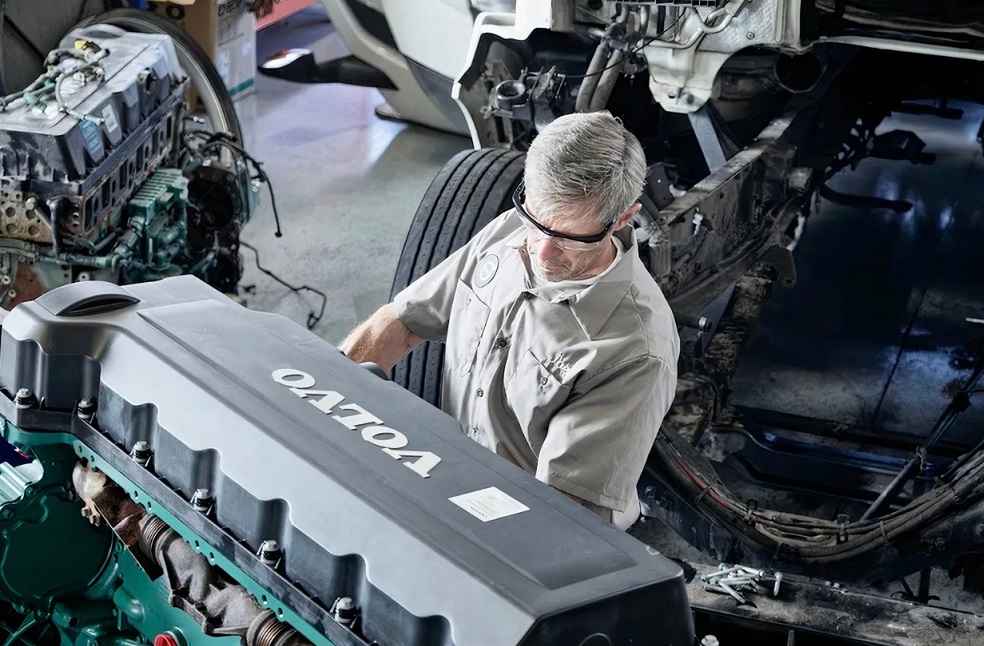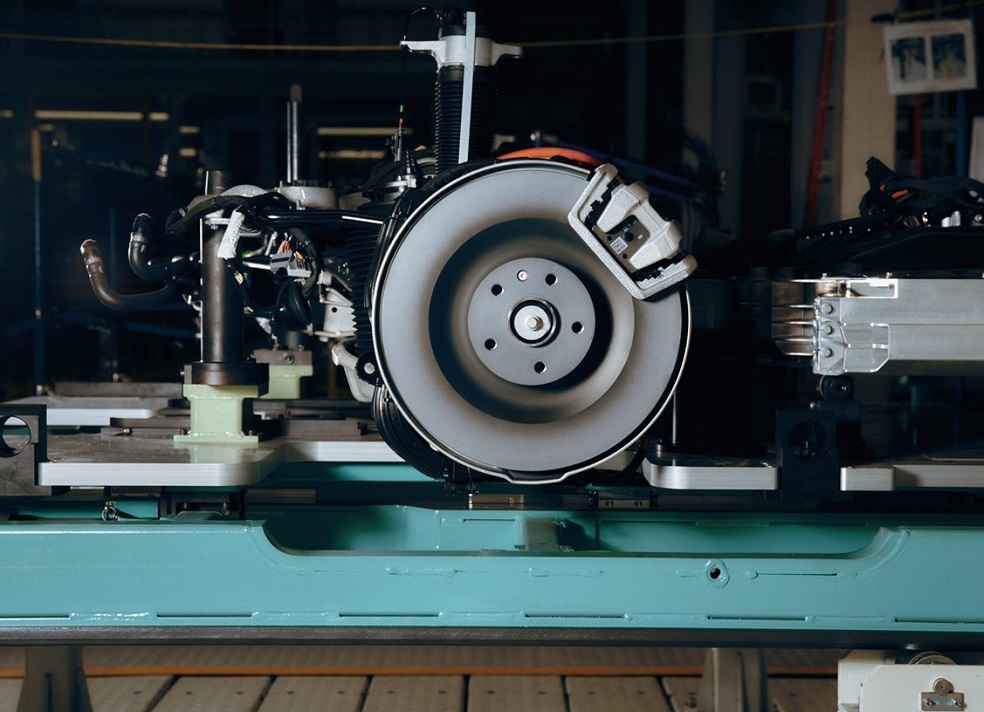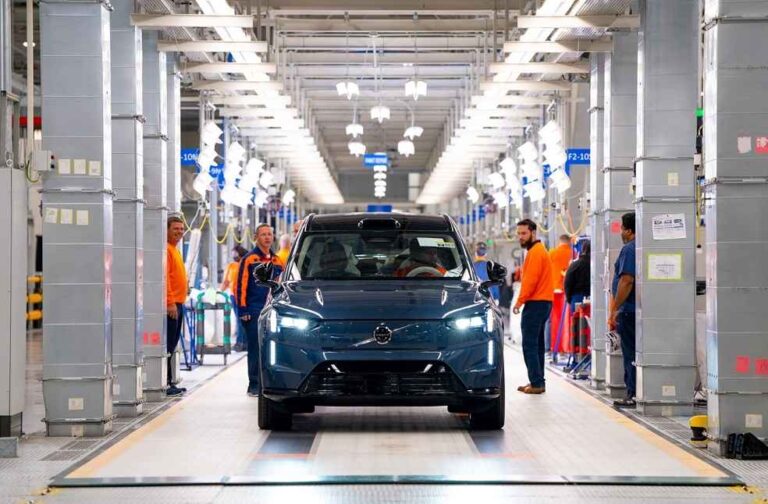Volvo Trucks increses the use of low-CO2-emission steel across its vehicle range. After pioneering the introduction of this steel in electric trucks back in 2022, Volvo now extends its application to all drivelines.
Sourced from Swedish manufacturer SSAB, the steel—named SSAB Zero—derives from recycled materials, produced using fossil-free electricity and biogas. This innovative process slashes CO2 emissions by 80% compared to traditional methods reliant on fossil fuels.

By the coming year, Volvo will equip around 12,000 Volvo FH and FM trucks with frame rails made from this low-emission steel, achieving a projected reduction of 6,600 tons of CO2 equivalents. As production increases, more truck models and components will integrate this breakthrough material.
Volvo’s ambitions go beyond steel. The company is actively exploring alternative low-emission materials, such as aluminium and plastic, to enhance the sustainability of its trucks. “This is an additional step towards our zero emissions vision,” said Jan Hjelmgren, Senior Vice President of Product Management and Quality at Volvo Trucks. “We are proud to lead the way in the industry when it comes to sustainable material in our trucks.”

Steel, constituting 47% of a Volvo FH diesel truck’s weight, contributes 44% of the vehicle’s total CO2 emissions during production. This underlines the transformative impact of adopting low-CO2 steel in reducing the carbon footprint of heavy-duty vehicles.
Net-Zero Target by 2040
Volvo’s collaboration with multiple suppliers reinforces its goal of cutting greenhouse gas emissions throughout the supply chain. The company remains steadfast in its commitment to achieving net-zero emissions by 2040. With a focus on circularity, many Volvo factories, transport systems, and dealerships already run on renewable energy sources.
KNOWLEDGE | World EV Day 2024: Uniting Global Efforts with ‘Let’s Drive Change, Together’





